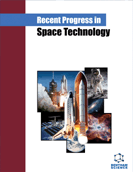Abstract
Perovskite inorganic perovskite-type oxides are intriguing nanomaterials
with numerous uses in electrochemical sensing, fuel cells, and catalysis. Because they
are catalytic when employed as electrode modifiers, perovskites made at the nanoscale
have recently attracted a lot of attention. These oxides have stronger catalytic activity
than many compounds made of transition metals and even some oxides of precious
metals. They display desirable physical and chemical properties like electronic
conductivity, electrical activity, oxygen content variations, mobility of oxide ions
through the crystal lattice, thermal and chemical stability, and super-magnetic,
photocatalytic, thermoelectric, and dielectric properties. In oxygen reduction and
hydrogen evolution events, nano-perovskites have been used as catalysts because they
have strong electrocatalytic activity, low activation energy, and strong electron transfer
kinetics. Additionally, some perovskites provide good prospects for the production of
efficient anodic catalysts with high catalytic performance for direct fuel cells. They can
improve the performance of the catalytic process in terms of selectivity, sensitivity,
exceptional long-term stability, good repeatability, and interference-fighting capacity.


















